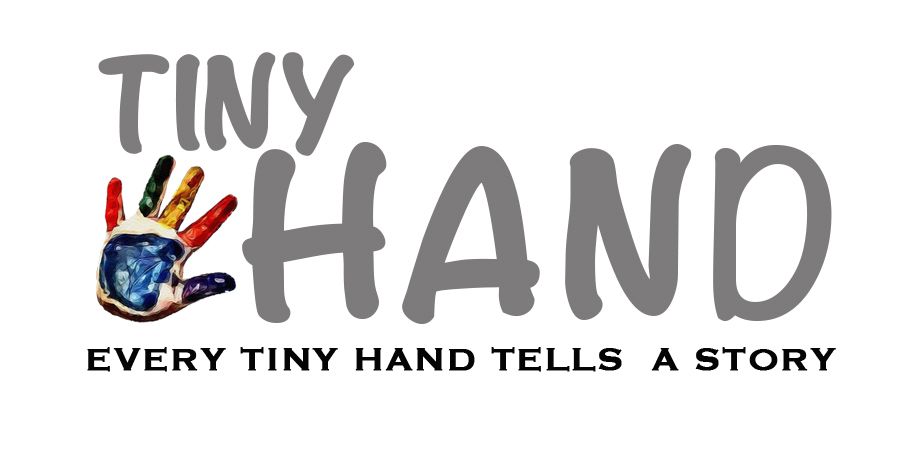Journey with Algerian researcher
under the age of 14 years
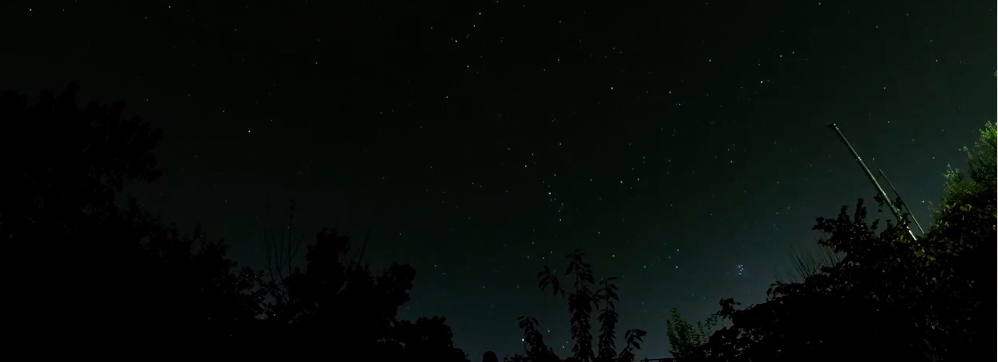
By: Riad Mazouzi
Looking out thoughtfully from the window of his small room overlooking the skyline of the high plateaus capital, Setif, east of Algiers, child Mohammed Hashelaf was fond of observing the movement of the sun and the moon and watching over the shining stars at night in his early childhood.
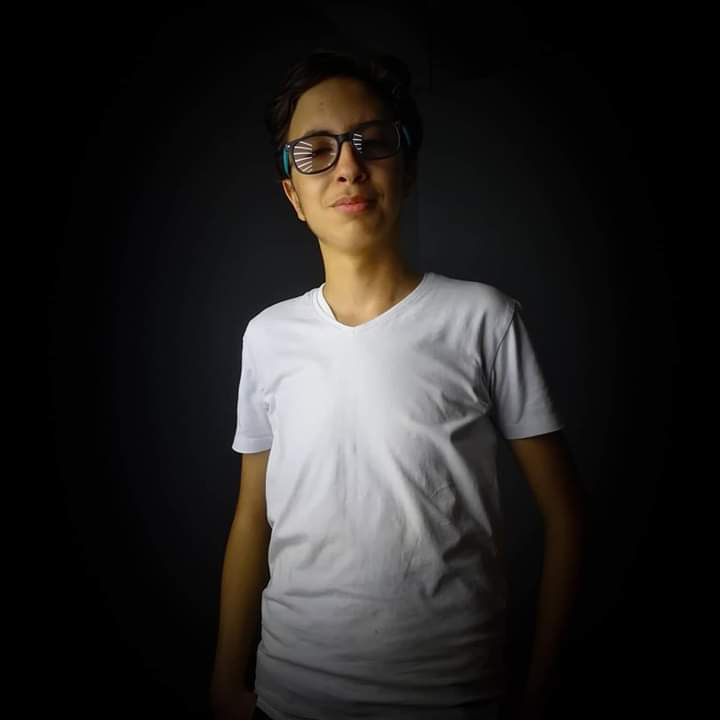
He decided to achieve his dream by studying space science and physics. He was always encouraged by the special relationship that linked him to these sciences and made him give up the foods and drinks he loves to read a book or watch a documentary or an animated movie about the universe, planets, and space. He decided to set his goal in this life and aspired to advanced positions in space science and astronomy. Eventually, he was able to claim important positions while he was still a child; he has been awarded the title of the youngest Arab researcher in the field.
In this report, we will accompany you on a journey into Hashelaf's world and his success story.
A 14-year-old student in middle school
Mohammed Hashelaf grew up amid the hills of the capital of high plateaus, Setif. Later on, he moved along with his modest family to Algiers where he pursued his education and became one of its residents. Mohammed is currently a first-grade high school student in the science branch. He has only two school years left to get his Baccalaureate of Secondary Education to join the university. He told Tiny Hand that he decided to join the science branch of high school to be able to fulfill his goals in astronomy, space science, and astrophysics.
Mohammed is certainly the youngest Arab researcher in this field. His specialty in university education is determined from now; he will be admitted to an institute or a college specialized in space science and astronomy. However, the child's dreams go beyond that as he aspires to study in one of the leading U.S. or European universities in the area of space science. "I was keen to learn foreign languages, especially English and French when I was still very young. Today, I master this language pair and now I am not studying German. However, I do not forget my native language, Arabic, which I admire the most," he explained.
The high school student was among the top students in primary school. His teachers attest to his excellence in all subjects whether science or literary subjects.
To many people, the night is the time when children tend to be quiet and calm. However, this was not the case with the youngest Algerian researcher in space science and astronomy, Mohammed Hashelaf, who started the journey of his studies, researches, and his future achievements in the darkness of the night.
He notes, "My interest in space science and astronomy started when I was seven years old. At that time, I tended to stay up or walk alone in the darkness of the night, which was opposite to what all my friends do; they tended to be afraid of the darkness and hide inside their homes once the sun sets."
He got very fond of the sky, space, and all the mysteries they have. Therefore, he went on studying as much as he can to uncover the mysteries of the sun, the moon, the planets, the galaxies, and whatever considered being part of this vast universe.
His love for the night and its darkness made him so obsessed with the stars that he dreams of flying into the space around the stars. In his early years of school, most of his drawings and stories he presented to his teacher and friends featured themes about the planets and the vast space.
Eventually, this made him feel that studying space and astronomy is something predestined for him. He started his scientific inquiry into the field he loves with great aspiration, unshaken determination, and unique support from his family.
At the age of eleven, a lecturer, and an author of five books under publication
Mohammad Hashelaf's passion for astronomy, space, and astrophysics encouraged him to read all the books and articles that feature his favorite field of science. He would even keep those leaflets that come with the newspapers and magazines and learn some of them by heart. He paid special attention to the news published by space agencies, particularly NASA. At the age of seven, he started his journey by giving lectures at some schools. He would talk to his classmates and his teachers on the latest studies and bring them the news of recent space discoveries. His presence went beyond educational institutions and started to take part in the scientific discussions and public forums hosted by local clubs and media organizations.
Hashelaf did not stop there but was frequently invited to participate in national and Moroccan forums, especially after he authored his 124-page book titled "Al-Majmuʽah Ash-Shamsiyyah" (The Solar System). It took him 8 months of writing and revision to finish the book. However, it was not a happy end as all Hashelaf's electronic devices, including the electronic copy of his book "The Solar System", were stolen.
He felt very depressed but, thanks to his passion for space science and astronomy, he resumed his writing activities. In two years, he finished the first two parts of his book titled "Rihlah fi-ʽUmq el-Falak" (A Journey in the Depth of Astronomy). He then authored another book titled "Al-Kawn bayn Yadaik" (The Universe in Your Hands). He even mastered writing in English and authored four books, which he has registered at the Algerian National Copyright Office (ONDA) in addition to his stolen book.
These writing efforts have not seen the light of the day yet pending the agreements being made with national and Arab publishing houses
The beginnings of his journey in the Arab region and the world
The young genius, Mohammad Hashelaf, has been very active and taken part into large-scale forums that made him the youngest Arab researcher in space science, astronomy, and astrophysics; he took part in the 7th National Arab Youth Meeting of Amateur Astronomers 2018, held in Um Al-Bawaqi province, Algeria. He also lectured at the First National Forum for Honoring Talented Children 2018 in Tiaret province, Algeria, organized under the supervision of the National Association for the Outstanding and Gifted Students and the Ministry of Scientific Research and Higher Education.
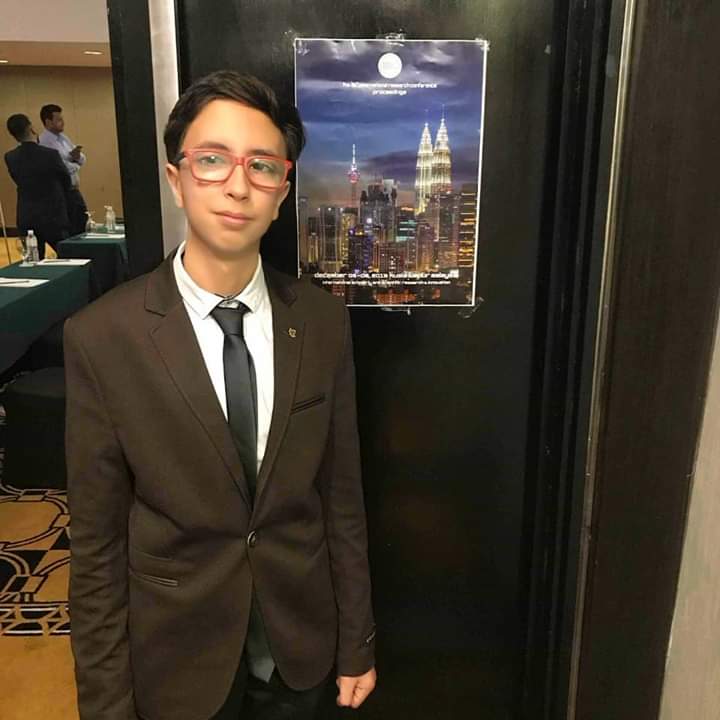
Hashelaf continued to deliver lectures and was among the top participants in the National Forum to Honor Gifted Children 2018, organized under the supervision of the Ministry of Scientific Research and Higher Education and the representatives of the United Nations in Algeria, and the patronage of the then Algerian President Abdelaziz Bouteflika. He also participated in the 20th Arab Conference for Space Science and Astronomy and the 7th Islamic Astronomical Conference, organized in Amman, Jordan, 2018 under the patronage of H.R.H the Crown Prince of the Hashemite Kingdom of Jordan and the supervision of the Arab Union for Astronomy and Space Sciences (AUASS).
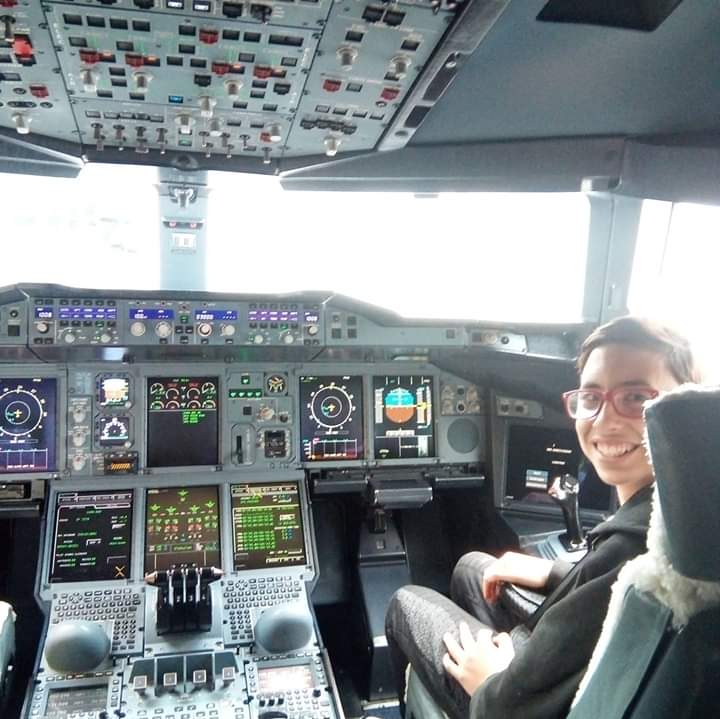
On May 2, 2018, Hashelaf was the youngest yet the most prominent participant in the 20th Arab Conference for Space Science and Astronomy and the 7th Islamic Astronomical Conference hosted in Amman, Jordan, under the patronage of H.R.H. the Crown Prince of the Hashemite Kingdom of Jordan and the supervision of the AUASS. As part of his participation, Hashelaf presented a research paper conducted under the supervision of the Jordanian Geographical Center, the AUASS, and the Jordanian Astronomical Society. Hamid Mugool al-Nuaimi, director of the AUASS, realized how much effort made in writing the paper within a period exceeding one year. He immediately decided to grant Hashelaf the membership of the AUASS to be the youngest member of the Union to date.
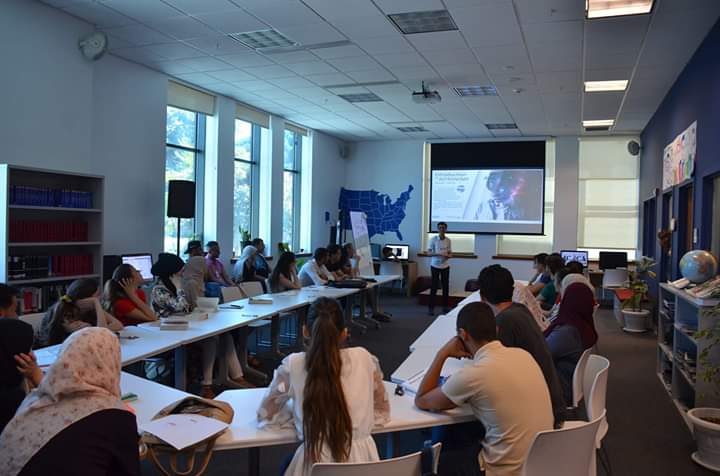
As for the young researcher's membership of the WASET, he was granted it during his participation into the 20th International Conference on Science, Technology and Engineering 2018, organized in Kuala Lumpur, Malaysia, under the supervision of the WASET, after he gave a lecture on the relationship between matter and the universe following the Big Bang, which was introduced by the director of the World Academy of Sciences. He was given two titles: the youngest member of the International Scientific Research Organization for Science, Engineering, and Technology (ISROSET), a decision-maker in the International Research Conferences Organization. As such, Heshlaf has authored three pieces of research in the field of astronomy and space technology. He highlighted the scientific view of space science and astronomy and pointed out that he received support from the Algerian state. He also presented several studies in the form of a series of lectures, which the Arab Institute for Astronomy has taken into consideration.
The dream: to establish a private astronaut company

Hashelaf started to make his way to the U.S. to be able to pursue his studies in space science, astronomy, and astrophysics. He did not have much left to realize his dream in the vicinity of NASA and develop his studies.
However, his stay there will not a permanent one, but rather a temporary one. He reveals the reason to us saying, "Our country needs us; we must go back home to contribute to its development."
The young genius dreams of establishing a private company for astronauts. He has already begun conducting in-depth studies on how to implement research projects on the surface of planets other than the earth while deepening research about life in the universe, and answering the questions occupying the minds of many people such as "Is it possible to live on another other than the earth?"
Home lockdown a long list of achievements
The lockdown measures imposed in Algeria forced Hashelaf to stay at home for around two months. He found in the lockdown a good chance for him to author, do researches, learn new skills such as data analysis, and online shopping.
In addition, he learned photography techniques and skills and participated in a number of forums and symposiums organized at the international level via zoom application.
"This period was very beneficial to me; it allowed me to devote more time to my research. I recommend all children to invest well in time and cling to the great hope of achieving success and excellence," said Hashelaf.
